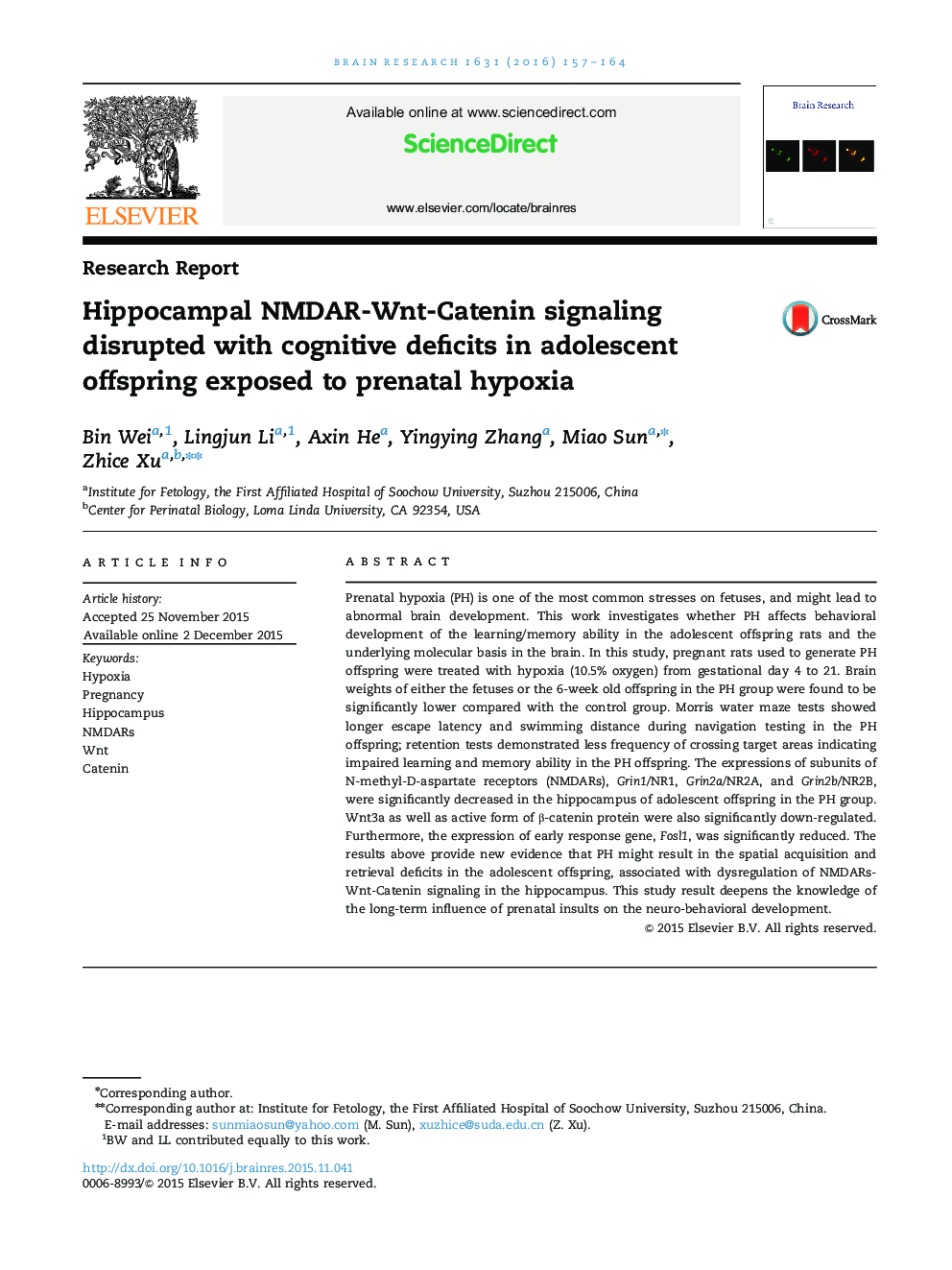| Article ID | Journal | Published Year | Pages | File Type |
|---|---|---|---|---|
| 6262622 | Brain Research | 2016 | 8 Pages |
â¢Prenatal hypoxia impairs brain development and learning/memory abilities in offspring.â¢Expression of NMDAR subunits decreases in the hippocampus of adolescent offspring.â¢The Wnt3a/β-catenin signal pathway is also down-regulated.
Prenatal hypoxia (PH) is one of the most common stresses on fetuses, and might lead to abnormal brain development. This work investigates whether PH affects behavioral development of the learning/memory ability in the adolescent offspring rats and the underlying molecular basis in the brain. In this study, pregnant rats used to generate PH offspring were treated with hypoxia (10.5% oxygen) from gestational day 4 to 21. Brain weights of either the fetuses or the 6-week old offspring in the PH group were found to be significantly lower compared with the control group. Morris water maze tests showed longer escape latency and swimming distance during navigation testing in the PH offspring; retention tests demonstrated less frequency of crossing target areas indicating impaired learning and memory ability in the PH offspring. The expressions of subunits of N-methyl-D-aspartate receptors (NMDARs), Grin1/NR1, Grin2a/NR2A, and Grin2b/NR2B, were significantly decreased in the hippocampus of adolescent offspring in the PH group. Wnt3a as well as active form of β-catenin protein were also significantly down-regulated. Furthermore, the expression of early response gene, Fosl1, was significantly reduced. The results above provide new evidence that PH might result in the spatial acquisition and retrieval deficits in the adolescent offspring, associated with dysregulation of NMDARs-Wnt-Catenin signaling in the hippocampus. This study result deepens the knowledge of the long-term influence of prenatal insults on the neuro-behavioral development.
